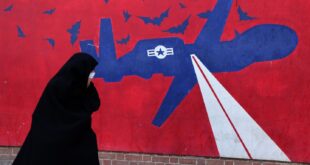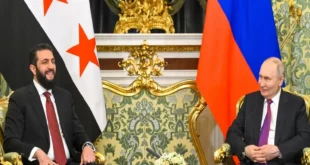Kuwait announced the death of its longtime leader yesterday, Sheikh Sabah Al Ahmad Al Jaber Al Sabah, who died at 91 years old.
Sheikh Sabah’s death, along with the death of Sultan Qaboos of Oman in January, leaves the region devoid of two of its most prolific peacemakers.
Sheikh Sabah worked behind the scenes to mediate ongoing regional disputes, and his death will reverberate throughout the Middle East.
Sheikh Sabah is credited with cultivating Kuwaiti-U.S. relations and building strong and enduring ties with the United States.
Kuwaiti state news agency KUNA announced the death of Kuwait’s longtime leader yesterday, Sheikh Saba Al Ahmad Al Jaber Al Sabah, who died at 91 years old. Sheikh Sabah was widely known as a skilled diplomat, working to help end conflicts and crises throughout the Middle East for the past several decades. In 2006, Sheikh Sabah replaced Sheikh Saad Al Abdullah Al Sabah, who was usurped following a vote in parliament after ruling for only nine days. Sheikh Sabah’s style was reserved, yet effective, in contrast to some of the region’s younger powerbrokers, including Saudi Crown Prince Mohammed bin Salman, whose policies are announced with much fanfare, but often lack substance. Sheikh Sabah and elder statesmen of his generation are now increasingly rare in the Middle East, and his death removes a counterweight to the impetuous and often brash decision-making of MBS and Emirati ruler Mohammed bin Zayed (MBZ).
His death, along with the death of Sultan Qaboos of Oman earlier this year, leaves the region devoid of two of its most prolific peacemakers, especially troubling at a time of extreme volatility from the Levant to the Persian Gulf. Sheikh Sabah’s death introduces an element of uncertainty into Middle Eastern regional affairs, although he is expected to be succeeded by his half brother, Crown Prince Sheikh Nawaf Al Ahmad Al Sabah. Still, many wonder if Sheikh Sabah’s replacement will be as shrewd or skillful in positioning Kuwait as a neutral party and one capable of orchestrating mediation efforts between bickering neighbors. At the center of Sheikh Sabah’s agenda was a focus on humanitarian efforts in the region, including a focus on the plight of refugees. He also played a key role in the founding of the Gulf Cooperation Council (GCC) in 1981 and its development over the years. Sheikh Sabah watched with dismay as the Saudis divided the GCC with actions and policies that harmed other Gulf Arab States.
Sheikh Sabah worked behind the scenes in an attempt to mediate ongoing regional disputes, including the Saudi-led blockade of Qatar, which began in 2017 and continues to the present day. In an appearance at the White House in 2017, he highlighted the severity of the blockade and warned that the situation could escalate to an armed conflict without dedicated diplomatic efforts to resolve the dispute. His four decades of experience as Kuwait’s foreign minister provided him with unique insight into the challenges of navigating foreign policy in the Middle East and Persian Gulf. Sometimes referred to as the ‘Dean of Arab Diplomacy,’ or ‘the Wise Man of the Region,’ Sheikh Sabah helped with mediation efforts during Lebanon’s fifteen-year civil war from 1975 to 1990, while also playing a critical role attempting to resolve Yemen’s many conflicts over the years.
During his tenure, Sheikh Sabah was able to respond to several major crises, from Saddam Hussein’s 1990 invasion of Kuwait to the 2011 Arab Spring to, more recently, fluctuating oil prices and the increased demand for domestic food subsidies. Following the U.S. intervention to dislodge Saddam and Iraqi forces in the first Persian Gulf War, Sheikh Sabah is credited with cultivating the Kuwaiti-U.S. alliance and building strong ties between Kuwait City and Washington that have endured through numerous U.S. presidential administrations. U.S. military bases in Kuwait have been instrumental to the United States’ ability to carry out its foreign and security policy, and were pivotal to U.S. interventions in Afghanistan, Iraq, and the ongoing fight against the so-called Islamic State. Remarking on the loss of Sheikh Sabah, former U.S. Secretary of State James Baker said that no matter what initiatives he was working on, the Kuwaiti emir ‘remained focused on helping us build a better world.’ His death leaves a void that will be difficult to fill, with potentially serious consequences for diplomacy and peacemaking efforts throughout the region.
 Eurasia Press & News
Eurasia Press & News

